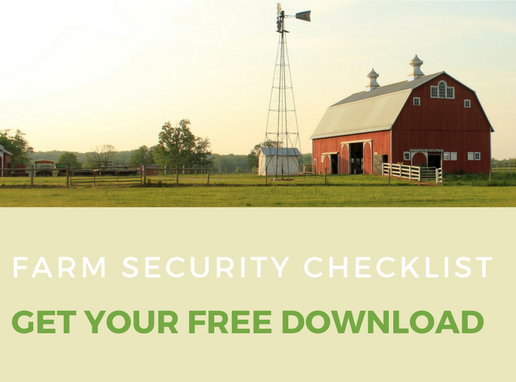Keep and eye on your poultry with Smart Barn Livestock and Farm Alarm
Updated May 16th, 2021. Previous post link here.
Why are Livestock Farm Alarms and Monitoring Important on your Poultry Farm?
It's important to have a livestock farm alarm to detect power outages and high temperatures on a poultry farm. At a minimum, you should be monitoring for power outages and temperature alarms. If ventilation systems fail, catastrophic bird death can begin in 15 minutes or less.
Fried chicken is only good on the dinner table, and roast turkey is great… but only if it's roasting in your oven on Thanksgiving. If you want your broilers to thrive, your layers max out their production, or your turkeys to make to the table, you have to keep them comfortable in the poultry house first. To do that you're going to need to take some steps to make sure your barn is well maintained, and you'll need a reliable monitoring system for your farm that records data and sends you alarms when there’s a problem.
What Should you Monitor on your Poultry Farm?
Power Outages and Generator Status
Storms happen, and no matter what, you need to know that the power is on, and if the power is out, if your generator started. Having an alarm in place that alerts you when there are power outages is critical to every poultry farm. Most insurance policies require a power outage alarm and generator to maintain eligibility for coverage. Common alarm dialers are a basic option, but many of these only check for power to the alarm dialer rather than connecting to critical circuits like your fans or generators. Smart Barn has a Wireless Power Outage Detection / Voltage Sensor that measures voltage wherever it’s connected. You can attach it to your main controller breakers or fan circuits, and receive an alarm on your phone with a call or text message. These sensors can also be attached to your generator, so you can track generator test starts and power outages.
Air Quality
Fresh air is your top priority for keeping your birds alive; depending on the severity of the problem, a flock can die within minutes if fans fail, and poor air quality in general can lead to health and productivity problems. Your main priority should me making sure that the ventilation system stays running, and then setting the ventilation system correctly and keeping it running well is very important. A functional ventilation system reduces disease risks, keeps humidity and dust levels low, and is your first line of defense against high temperature. High humidity, excessively dusty air, and temperatures that swing widely up and down are some indications that your ventilation system is not working properly. Tracking humidity and temperature in your barns is a good way to gage how well your ventilation system is operating. The following article on The Poultry Site has a more detailed discussion: Key Factors for Poultry House Ventilation
Smart Barn Humidity Sensor
Temperature
Full-grown chickens have a natural body temperature of 104-107°F, so high ambient temperatures not ideal for your flock. While heat stress is more likely with broilers because of their muscle mass and fat content, the egg size and quality of your layers can also be negatively affected. Chickens can’t sweat or pant, and small variations can significantly stress your flock. To be sure your chicken house is cool in the summer and warm enough in the winter, you need to be monitoring your barns 24x7, and keeping your ventilation system running at maximum efficiency. Smart Barn’s combination temperature and humidity sensor monitors and records both temperature and humidity in your poultry barns. You can use Smart Barn to receive alarms on your phone using a call or text message if there’s a problem, and you’ll be able make sure your flock is comfortable and safe.
Poultry World has a lot more useful info here: Climate in poultry houses
The University of Kentucky Department of Agriculture and Food Science has more useful info here: Maintaining consistent temperatures is especially critical to your poultry health
Water Consumption
Poultry, including chickens and turkeys, generally drink twice as much as they eat, but in times of heat stress their water consumption can double or even quadruple. A flock of broilers can drink 50-100,000 gallons of water, so it’s well worth your while to keep an eye on your water usage as well. Monitor it from the palm of your hand with Smart Barn’s remote wireless pulse counter and water meter.
Hopefully this article was useful and helped you understand the importance of a livestock and farm alarm system on your poultry farm. Don’t get caught without one!
Smart Barn | Wireless Livestock Farm Alarm
MONITORING AND ALARMS FOR POULTRY, PORK, AND DAIRY FARMS
Veteran Owned and Made in the USA
QUESTIONS?
Call or Text NOW:
1-937-697-1890 email: contact@smartbarn.io
Smart Barn is a comprehensive remote monitoring system that not only alerts you when something isn't right on your poultry farm, and allows you to check on your flock whenever you want from the convenience of your phone, tablet or internet browser. Stop losing sleep worrying about your poultry farm - take a look at our full line of sensors and contact us today!







